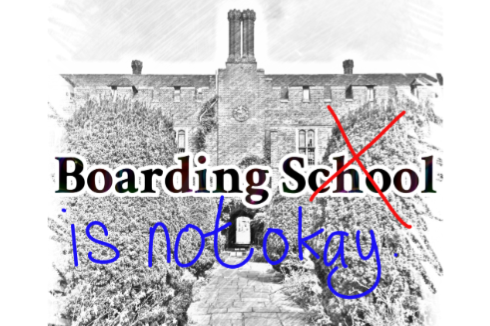
- This event has passed.
Boarding School Is Not Okay
January 27, 2024 @ 9:30 am - 1:30 pm
£45
Many, many children have been packed off to boarding school and the romantic ideals (and academic hot-housing) are held in high regard in the British collective psyche. Yet, many people who are connected to ex-boarders (spouses, colleagues, friends, relatives) readily observe a sense of distance, a remoteness or “apartness”, even if the phrase “Boarding School Syndrome” isn’t common parlance for them.
Many ex-boarders struggled to adapt to the freedom of adulthood and never really understood why their twenties were so discombobulating: perhaps dropping out of uni, or not bothering to get a ”good career’ (yet carrying the weight of implied disappointment for not meeting the imposed expectations). We drift.
Others go on to have children of their own: only to have a crisis of confidence when their children ‘come of boarding school age’. They realise they have little to no parental imprinting. Others are confronted with the reality of just how damned small and vulnerable they were. Lots of people will declare, “It was fine for me, but I wouldn’t send my children!” Our parents most likely assume we’re not sending our children because they are so expensive nowadays.
Some of us hit our forties and fifties before we cease to support the delusion. Nonetheless, we feel compelled to say silent. If I declare that “Tomatoes are not okay,” I have noticed no one ever feels compelled to set me straight.
Once upon a time I would have said “Boarding school was okay,” and if you had enquired further (which few do), I might have said, “The first one was dreadful, but the second one was fine,” If you’d asked me what wasn’t okay about it, I would have sound like I was whinging: The food, the rules, the lack of privacy, the being ‘on the go’ the whole time, the lack of ability to express one’s sense of individuality. The continually being yelled at. Oh, and let us not mention the paedophiles and the sexual abuse.
Usually when I utter the words, “I went to boarding school,” someone will cut in with “I wish I had gone…”. No one really asks, and rarely do we talk about it. The past is another country, best we don’t go there.
One day, I went to a meeting of recovering alcoholics and observed that five of the six people present had been to boarding school and that was my delusion shattered. If one in one hundred children go to boarding school and ten percent of the population have alcohol misuse disorder, then when didn’t they teach that kind of Maths in our GCSEs? How come we are overpopulating rehabs and therapy rooms? How come so many ex-boarders are divorced or opt to be childfree? Why do so many struggle to maintain a long-term career or choose careers that have them relocating frequently? Why do so many exhibit obvious forms of dysfunction: anger management issues, substance abuse, high-risk decision-making (cheese and wine parties in a pandemic; gambling, fraud…). Why do so many pursue extreme sports or indulge in behaviour that others might denounce as immoral. Why do we wait for our parents to die before it feels safe to say, “Boarding School was not okay”?
It took half a lifetime to learn how to articulate that sense of abandonment, cultural abstractness, loss of childhood and fear or re-imprisonment that is the deeply-disguised norm for the ex-boarder. Therapists often do not enquire. I devised this event to assist mental health specialists ‘see’ our childhoods as we did. What it was really like – simply because they are the experts in helping us recover from adverse childhood experiences. This seminar brings together the two groups to investigate beyond the literature and talk about ‘what was not okay’. Rest assured: no ex-boarder is required to divulge any of their experiences unless they wish to – there are ex-boarders coming who are comfortable about illustrating the points. Nonetheless, if you are an ex-boarder who wishes to talk about your time there, you will be heard.
In preparing for this event (my second on this subject), I am acutely aware that almost all current research (there’s really not that much) has focused on the boys’ boarding school experience. Most people have been educated by J. Rowling and E.Blyton. Some will know that Tom Brown School Days were set in the Victorian era. “It’s not like that anymore” is the mantra of all boarding schools. Too right – it’s 2024. We have the best knowledge we have ever had on healthy child-rearing practices…
This talk specifically includes topics pertinent to all girls, former all-boys and all-boys boarding schools, but it is specific to British educational establishments.
Whenever I advertise that “Boarding School is not okay” I quickly hear from some Very.Angry.People – all of whom had been to boarding school themselves telling me I was wrong.
“It did me no harm,” they assure me.
To comfort those who wish to continue to believe that boarding school is okay, we do have a section on what’s great about boarding school. You are very welcome to join this event and advocate for them if you have attended one yourself but please don’t email me with your views. I went to two. I also have two Masters degrees, one in adult education. I am the first to “joke” that I have been educated far beyond my natural capabilities.
This talk is strictly limited to ex-boarders, therapists and mental-health professionals.
https://www.eventbrite.co.uk/e/775684080967
Tea, coffee, snacks and tissues are provided. Car parking is free too.